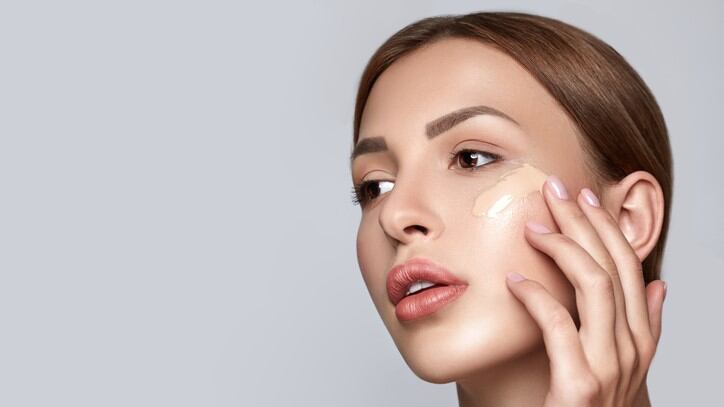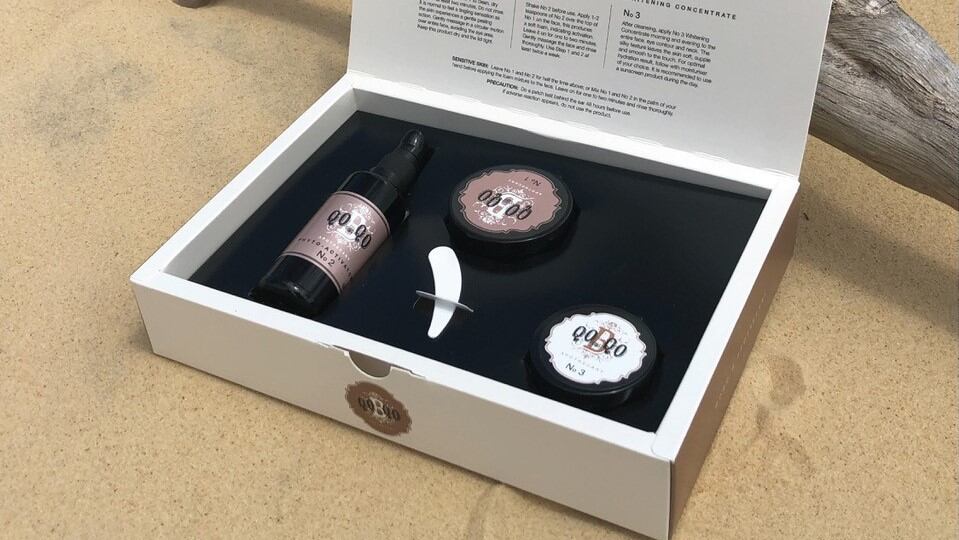According to Lucy Liu, the company’s business development manager, Chinese women are not wearing as much colour cosmetics compared to Korean or Japanese women to ‘protect’ their skin health.
“You can just observe around you… Women in Beijing, Shanghai and Guangzhou do not wear a lot of colour cosmetics. They think pigments in the make-up can penetrate into the skin or clog pores. They still think make-up could be harmful to the skin, cause acne or discolouration,” explained Liu.
According to Liu, micron-range pigment particles can block pores in the epidermis and cause problems like acne.
It can even lead to discolouration and uneven skin appearance if the cleaning process is not thorough.
“It’s the same concept as nail polish,” elaborated Dr Jane Sum, Covestro’s head of cosmetics. “If you don’t apply a base primer, you will get yellow nails when you remove the polish.”
A protective barrier
To tackle this issue, Covestro highlighted Baycusan C1004, a biodegradable film former at Personal Care and Homecare Ingredients (PCHi) in Guangzhou this year.
Used as a primer before foundation, C1004 was found to have an anti-penetration effect.
Sum said: “We used a surgical tape that has similar to skin in terms of pore size. Underneath, we placed tissues to measure how much foundation goes through. Using our product as a primer, it does not go through many layers compared to other products which can go through four to five layers of tissue.”
“We found some pigments even penetrated through five tissue layers which means that pigments can penetrate 0.58mm [into the skin],” Liu elaborated.
She added that the team will continue studying the mechanism of skin damage by makeup pigment penetration.
Even though C1004 forms an effective barrier against pigments, Sum assured it would not be felt on the skin.
Aside from pigments, C1004 is also effective against blocking out pollution. The film acts as a barrier to air pollutants, especially particulate matter smaller than PM 2.5.
Sum highlighted that finding new ways to communicate product efficacy was becoming increasingly important.
“If you look at the film former market, it’s very traditional and has been the same for 40 to 50 years. We hope our technology can allow our customers to innovate more, give better performance, and be better for the environment and consumers’ daily use.”
More opportunities in Asia
Another opportunity Covestro sees in the APAC market is within the large population of consumers that travel on motorcycles.
These consumers are no longer using hair products as the need for helmets render their hair styling efforts moot.
To tackle this challenge, Covestro developed Baycusan C1010 which can be restyled.
"Right now, if you use a gel and run a comb through to restyle it will flake. Our technology is elastic and not tacky so it feels natural," said Sum.
The company also sees opportunity in the halal beauty market. Its film formers are vegan but are not certified halal yet.
“It’s one direction we will definitely look at. We are getting more and more request from our customers,” said Sum.
Sustainable solution
Besides creating safe products for consumers, Covestro is also interested in creating film formers that are safe for the environment.
Sum highlighted that the market has limited solutions are available and that it can be a real pain point for their customers.
“There are high-performance film formers that are not necessarily good for the environment. On the other hand, there are the natural ones that people perceive as better but often these are not high-performance.”
Covestro believes its latest film former, Baycusan Eco E1000, is the solution to this problem.
“It is partly fuel-based and partly natural. It’s 60% corn, a renewable resource so it’s sustainable. If you look at the processes, it uses less energy as well and improves your carbon footprint,” said Sum.
Eco E1000 is the alternative for manufacturers of natural cosmetics. “Most of the time, they just use synthetic, but we can help increase their bio content maintaining performance,” said Sum.
At present, Sum said it is difficult to develop a 100% bio-based film former, but it is possible to continue increasing the bio-based content.
“We could probably increase the bio-based content to over 60%, but we must look at the market needs. If we change, it might not have the same performance.”





